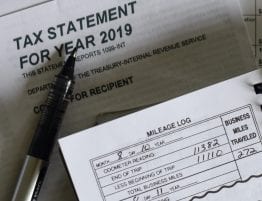
Pennsylvania has joined other states in reforming its tax credits incentives. The state’s tax incentives will undergo extensive changes in order to increase their effectiveness and usefulness for taxpayers. As part of an ongoing process, the state’s Independent Fiscal Office (IFO) will regularly analyze and evaluate tax incentives so that policymakers can make improvements that are aimed at benefitting the taxpayers. PEW shares:
“Pennsylvania Governor Tom Wolf (D) signed a measure June 28 that makes numerous reforms to state tax incentives. Among its provisions, H.B. 262 closes the New Jobs Tax Credit to new applicants after June 2020 in the first significant policy change aligned with specific program evaluations produced by the state’s Independent Fiscal Office (IFO). The new law also makes administrative changes to the state’s Historic Preservation Tax Credit that reflect suggestions in that credit’s IFO report.
The evaluations, released in January, include valuable recommendations for lawmakers on how to improve program design and administration. The three analyses–for the New Jobs, Historic Preservation, and Film Production credits–are the first produced by IFO as part of the General Assembly’s 2017 mandate to regularly review such incentive programs. This year’s legislative action shows that policymakers can make effective use of these reports, more of which are planned.
With the publication of these studies, Pennsylvania joined an increasing number of states producing evaluations that look at whether tax credits are producing the desired results–and that offer recommendations on how they might be strengthened.
These analyses and insights into existing tax incentives will help policymakers to analyze critically about what each tax credit aims to provide and how well it is fulfilling its function. Policymakers will also be encouraged to look for changes that can improve the performance of a tax credit. After the goal of each tax credit is created, policies will be established” to meet those goals.
Along with recommendations to make transferable credits refundable, the IFO has also suggested administrative changes to the programs. PEW details:
The evaluations recommend clarifying and refining application and review processes to increase predictability, transparency, and flexibility. Specifically, the evaluations call for regular award dates for historic preservation credits, a quicker approval process for film credits, and the flexibility to switch between higher- and lower-value credits for the new jobs program, depending on whether a company hires veterans or previously unemployed individuals. With greater certainty about the timing and their eligibility for potential benefits, companies can determine whether applying for the credits is worth the effort.
Finally, the IFO proposes additional metrics for agencies to track the performance of each program. This would include data that could help answer the ‘but for’ question, such as information about film credit applicants that did not receive an award, to see if they still operated in the state without the incentive. Other metrics vary by credit and are designed to determine if program goals are being met.”
Fill out the form for a free and confidential consultation.








